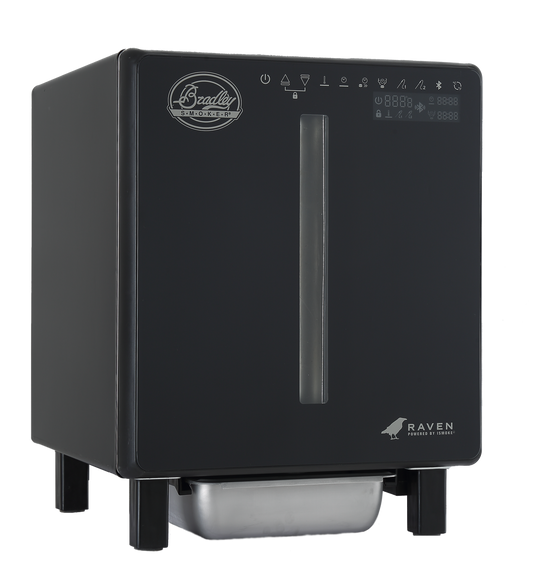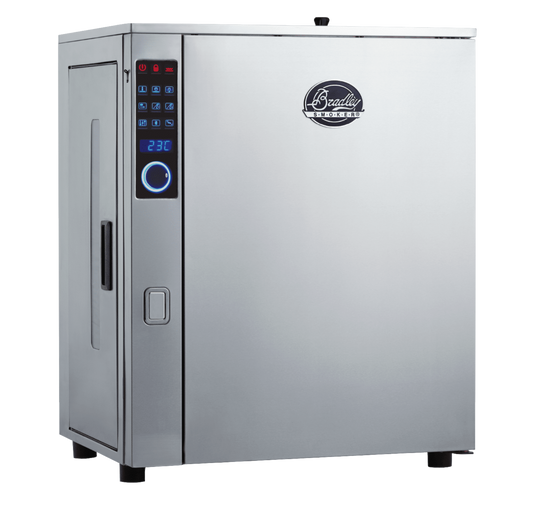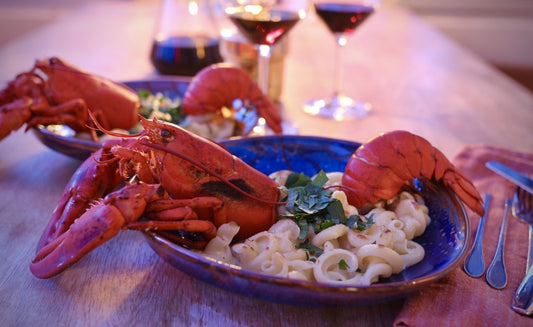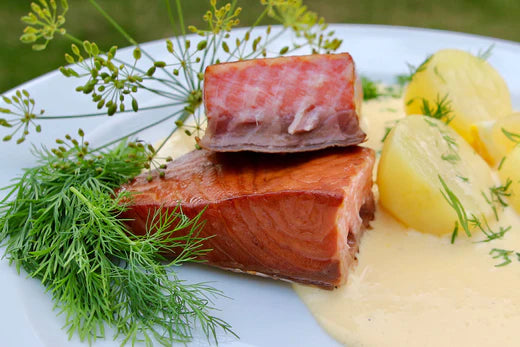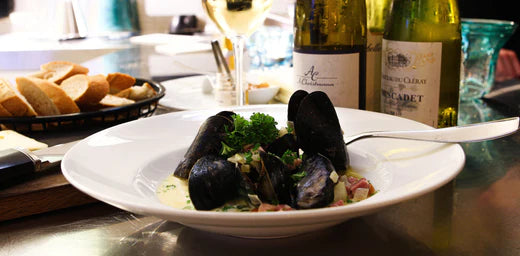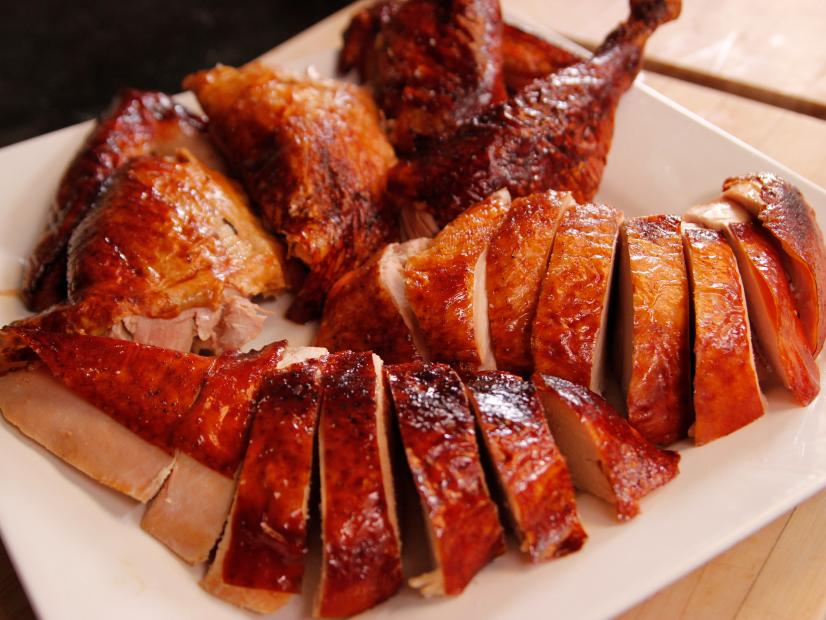
Boudreaux’s Smoked Turkey Recipe
Smoking a turkey definitely takes a bit longer than roasting. Read on and plan in advance so you can have plenty of time for the perfect turkey!
I’m going to use my Bradley for one of our turkeys this coming Thanksgiving. It will be the first time ever brining and smoking a turkey. I’ve found several brine recipes and the process seems simple enough. I think I’ll do a rub under the skin also.
The thing I’m really wondering about though is how much smoke to give the bird. I know it will take several hours for the bird to fully cook. I live in northern Nevada and the outside temperature will be cool. Should I run smoke the entire time cooking it, or puck it up long enough for 2 or 3 hours of smoke.
Fortunately, I came up with this recipe by cajunboudreaux and these are some extra suggestions I got from him.
Brine it for 24 hours then apply smoke for about 5 hours. I smoke at 190 F. I use hickory with every 4th puck being apple. With the OBS burning so clean it does not over smoke. If you want to get a little crazy and knock people’s socks off, cold smoke for 2 hours, then deep fry 3 minutes per pound. I would also suggest you cover the bird with French’s yellow mustard and apply Cajun seasoning to the outside. Below is my homemade Brine and Standard directions.
Ingredients
Bourdeaux's Turkey Brine:
Brine (24 hours)
1 Gal water - you will need more water, just use this as table
1 Cup of salt
¾ Cup of soy sauce
½ Cup of white sugar
½ Cup of brown sugar
½ Cup of honey
½ Cup of apple cider vinegar
4 Tbsp black pepper
3 – 4 Tbsp chopped garlic
1 Tsp Allspice
2 Tsp tony chachere’s seasoning
1 Sliced orange
1 Sliced apple
Preparation
To Brine a Turkey:
Supplies: To properly brine a turkey, you need to start the night before you plan to cook. You will need at least 10 to 12 hours (plan on 1 hour per pound of turkey), a container large enough to hold your turkey and enough brine to cover it.
You’ll also need salt, water, sugar, seasonings, and enough room to refrigerate it. A large stainless steel stock pot or even a 5 gallon clean plastic bucket would make excellent containers.
Whatever container you choose, the turkey needs to have enough room to be turned, so it should be big. Both Reynolds (Oven Roasting Bag for Turkeys) and ziploc (XL storage bag) make very large food safe resealable bags that are great for brining.
The Turkey:
The turkey should be cleaned out, completely thawed, and should not be a self-basting or Kosher turkey. Self-basting and Kosher turkeys have a salty stock added that will make your brined turkey too salty. A fresh turkey works best, but a completely thawed, previously frozen turkey will work just as well.
Brines can be spicy hot with peppers and cayenne, savory with herbs and garlic, or sweet with molasses, honey and brown sugar.
Sweetening the Brine:
Sugar is optional to any brine, but works to counteract the flavor of the salt. While you may choose a brine without sugar, I do recommend that you add sugar (any kind of “sweet” will do) to maintain the flavor of the turkey. Add up to 1 cup of sugar per gallon of brine. Like the salt, you need to make sure that the sugar is completely dissolved.
Set-up:
Place the turkey in a container and pour in enough brine to completely cover itt, with an inch or two to spare. You do not want any part of the turkey above the surface of the brine. Now you put the whole thing in the refrigerator. The turkey should sit in the brine for about 1 hour per pound of turkey. Brining too long is much worse than not brining enough, so watch the time.
Keep it Cool:
Don’t have room in the refrigerator? Try a cooler. A cooler big enough to hold your turkey makes a good container for your turkey and brine. The cooler will help keep it cool and allow you to brine your turkey without taking up precious refrigerator space. If the weather is cool, but not freezing, you can put the whole thing outside until you need the turkey. If the weather is warm, fill a a zip top bag with ice. Place this in the cooler with the turkey and brine, and it will hold down the temperature during the brining process.
Rinsing:
When you are ready to start cooking your turkey, remove it from the brine and rinse it off thoroughly in the sink with cold water, until all traces of salt are off the surface inside and out. Safely discard the brine and cook your turkey as normal. You will notice the second you start to carve your turkey that the brining has helped it retain moisture. The first bite will sell you on brining turkeys forever, and after you’ve tried this you will want to brine all your poultry.
Enjoy and Good Luck. You will have fun!

